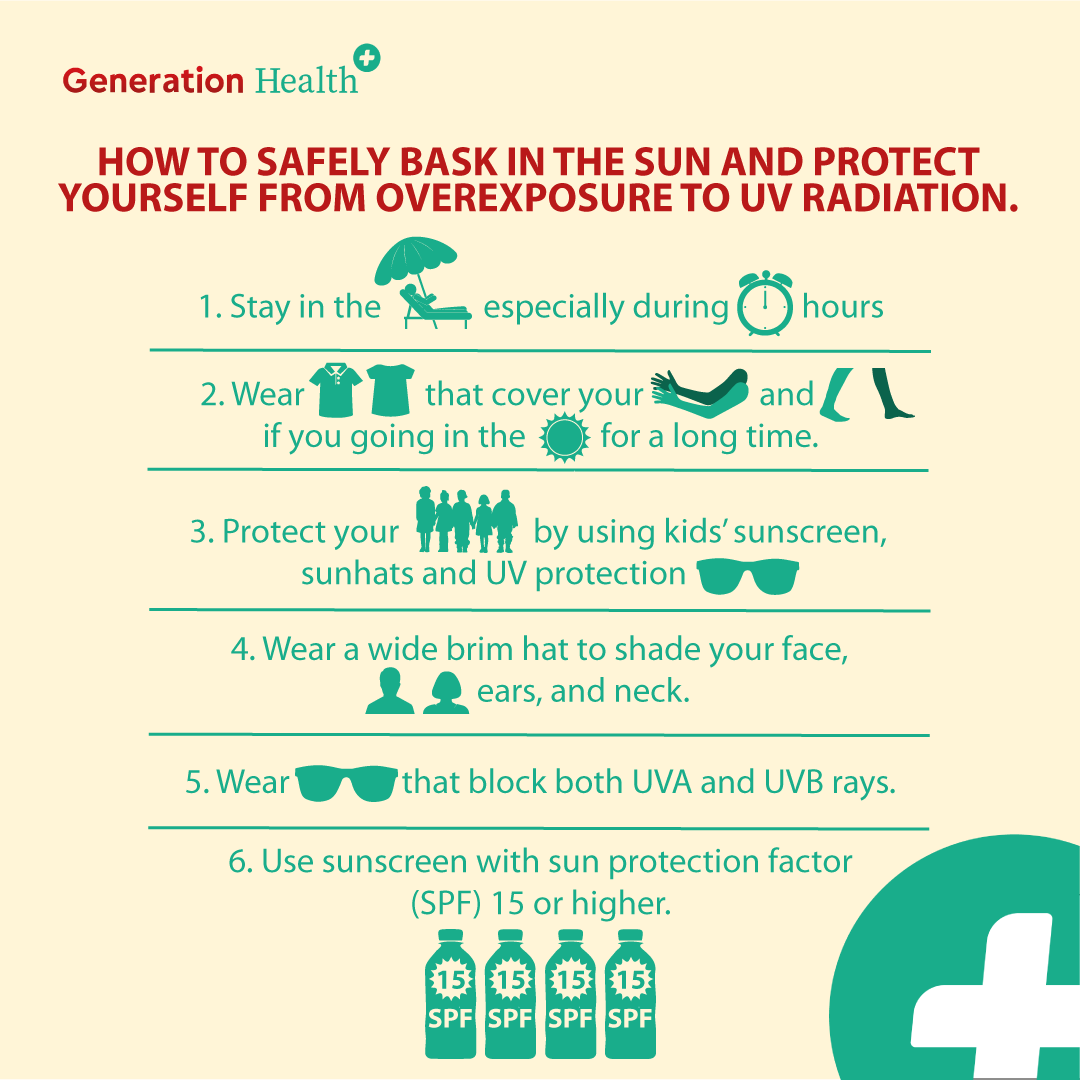|
Getting your Trinity Audio player ready…
|
By Generation Health
What would we do without the sun? From lighting our world, keeping us warm, and growing our food, it does so much for us. Simply put, without the biggest star in our solar system, we would be extinct. However, for every good thing, there is a downside.
July is Ultra Violet (UV) Safety Month. There is a need to educate ourselves on how to enjoy the sun but also pay special attention to our eye and skin care as we bask in the winter sun. The world also recently celebrated World Albinism Day and it is important to remember those with albinism whose exposure to the sun affects them a little more.
The winter cold often pushes us to bask in the little sunlight we get to warm ourselves. As the summer also fast approaches there is a need to understand the sun and its properties. While the sun has some benefits for people, including the creation of Vitamin D, it also can cause health risks. For people with Albinism, who have a reduced amount of melanin pigment in the skin, hair, and/or eyes, additional special care has to be taken. Generation Health is a proud supporter of albinism awareness and works with the Zimbabwe Albino Association to educate society and assist those with the condition.
There is well-established evidence that prolonged exposure to Ultraviolet Radiation (UVR) from the sun can lead to skin cancer and eye damage. When it comes to Race and Ethnicity, they do not have an impact on the effects of overexposure to UVR. UVR causes sunburn which is a sign of short-term overexposure, while premature aging and skin cancer are side effects of prolonged UV exposure. UV exposure increases the risk of potentially blinding eye diseases if eye protection is not used. Some oral and topical medicines, such as antibiotics, birth control pills, and benzoyl peroxide products, as well as some cosmetics, may increase skin and eye sensitivity to UV in all skin types.
Generation Health Head of Marketing and Business Development, Caroline Mbofana Dyirakumunda said, “Everyone, despite skin colour or condition should pay attention to sun exposure and minimise its effects. In the societies we reside we have people with albinism and we should assist them with protective gear as they are more susceptible to the effects of the sun.”
Overexposure to UV radiation can lead to serious health issues, including skin cancer. Contrary to the belief that skin cancer affects mainly Caucasian skin, it affects people of all races. All these effects are more acute in people with albinism and should be more cautious when it comes to UV exposure. In recent years Generation Health supported Albinos in Zaka Jerera by donating and supporting their cause. As part of celebrating World Albinism Day, Caroline Mbofana Dyirakumunda said “Around the world, people living with albinism demonstrate their talents and shine in all domains of life. We celebrate your gifts, skills, and personhood. Let us all fight to destroy stigma and barricades against persons with albinism- not on one day, but every single day.”
Sun protection should be part of your daily grooming routine because sun exposure happens and adds up day after day. For best protection use a combination of sun protection measures.
These include:
- Stay in the shade, especially during midday hours.
- Wear clothes that cover your arms and legs if you going in the sun for a long time.
- Consider options to protect your children like using kids’ sunscreen, sunhats and UV protection sunglasses.
- Wear a wide brim hat to shade your face, head, ears, and neck.
- Wear sunglasses that block both UVA rays(associated with skin aging) and UVB rays(associated with skin burning).
- Use sunscreen with Sun Protection Factor (SPF) 15 or higher.
Curious about your skin? Here’s what you can do:
- Learn what to look out for
- Look out for Asymmetrical shaped, Irregular bordered, and Evolving moles that may change in Colour or Diameter.
- Examine your skin, take note of freckles or moles.
- From your body front, your arms, toes and your back.
- Record your spots
- If you notice any new or changing spots contact a dermatologist.
As Generation Health, our medical aids depending on your plan, cover most optical and dermatological appointments. With our medical aid cover, you can get prescribed spectacles or sunglasses which help prevent extensive damage from the sun. Skin-related concerns are also covered by our specialist section in which you can visit a dermatologist who can assist you and answer more questions. Don’t wait till it’s too late… prevention is always better than cure and as summer fast approaches invest in a good quality sunscreen, a sunhat/umbrella, and sunglasses that have UV protection.
